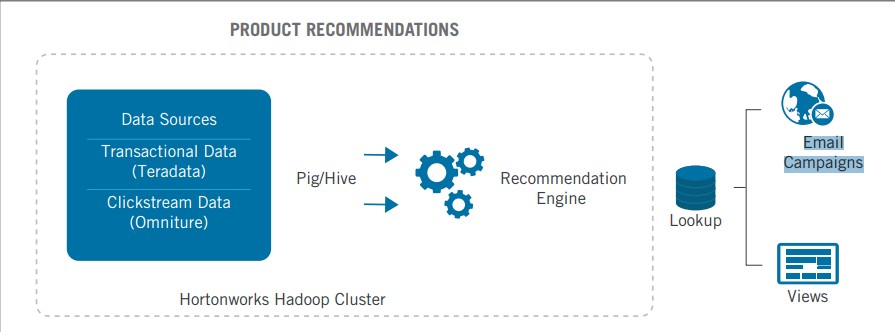Personalization is the new ‘weapon’ in the internet dominated digital world as the gap between companies and their customers shrinks. With buyers getting more inclined towards online platforms, there is an incessant need for online shop/retail owners to create a cordial, welcoming and more importantly, an easy-to-shop atmosphere for online shoppers. With online platforms stacking up thousands if not millions of products and their variants, shoppers can be lost in the search for desired products and may end up leaving the platform altogether, something no online shop owner can afford!
As competition touches new levels in this digital era, personalization matters a lot more than presumed and personalized product recommendation engine is the tool to help create that very personalized experience for online shoppers. Product recommendation engines enhance the buying experience for customers and influence them making it a win-win situation for both shop owners and customers. While shop owners benefit through improved conversion rates, faster sales and subsequent increase in revenues, customers have a value-add through convenience and savings on time, efforts, and money.
A survey by Teradata which surveyed 1,500 marketers revealed that close to 90% of these professionals believed that individualized marketing is the future, and the concept needs to move beyond segmentation to a one-to-one personalization in a real-time context. This proposes a need for a Personalized Product Recommendation Engine but then, with so many solution providers out there, how do we choose the most suitable of all. Shop owners can choose the most suitable solution by looking into features of a product recommendation engine.
What then, are some of the best features of a Product recommendation engine?
Variety and Sophistication: A good product recommendation engine is sophisticated and intelligent even as it carries out multiple functions. It should have the best and most convincing product recommendation options, some of which are– ‘what did other customers buy’, ‘Customers who bought this also bought’, ‘Customers are most likely to buy’, etc. These preferred recommendations should be easy to add to any page of the shopping site and must also be easily interchangeable.
Integration with Offline Data: The engine should be able to integrate offline data with online data, especially for those companies which also own brick & mortar stores. Integrating this data helps to understand customers even better and helps create the best possible product recommendations when offline shoppers visit online or vice-versa. Data plays a big role if mined, analyzed, and utilized in the right manner.
Social Media Connect: Nowadays, social media platforms have become the center-bed of discussions whether personal or official. These engines should be able to comb through social media discussions and identify customer behavior patterns. The engines should then be able to connect all this data to shopping sites and provide exclusive product recommendations based on buyer discussions, behavior, choice, and past purchases. Think about this – Wouldn’t it be great if a customer found a product she discussed (on her social page) on her visit to online shopping website? This actually makes the job easier for online shop owners!
E-mail Connect and Personalization: Post purchase phase is an important one as far as both customers and shop owners are concerned. Online shop owners should not shy away from getting in touch with customers over email to establish what can be a long and sustainable relationship. At the same time email marketing should not go overboard or else it will lose its relevance; getting into the Spam Box of a customer does not get companies anywhere.
Product recommendation engines should enable online shop owners to send contextually relevant emails and personalize them with respect to each customer. For example, a customer who recently purchased a smartphone can be emailed about the best possible options on products, such as screen protection guards, back cover cases, and ear phones. Such emails make more sense to customers who are likely to be enticed into purchasing these ‘’recommended’’ products.
The impact of personalized product engines is being felt by online store owners, one specific example being the survey done on 1.5 billion shopping sessions by MarketingSherpa –
- 5% of revenue generated from these sessions was attributed to purchases from ‘’product recommendation’’
- Another interesting observation was that the companies that used the recommendation ‘’Visitors who viewed this product also viewed’’ had the maximum success with 68% of their total revenues coming from this particular product recommendation
The above statistics stand testimony to the efficient and effective nature of product recommendation engines and how they are helping businesses create greater customer experiences while increasing customer retention numbers and subsequent revenues. As far as customer shopping experience and business growth is concerned—Personalized Product Recommendation Engine has become a necessity among online platforms. At the end of the day, it is about placing contextually relevant product at the right price in a very personalized manner that increases chances of customer conversions and order value. Now who wouldn’t want that?










Comments are closed.